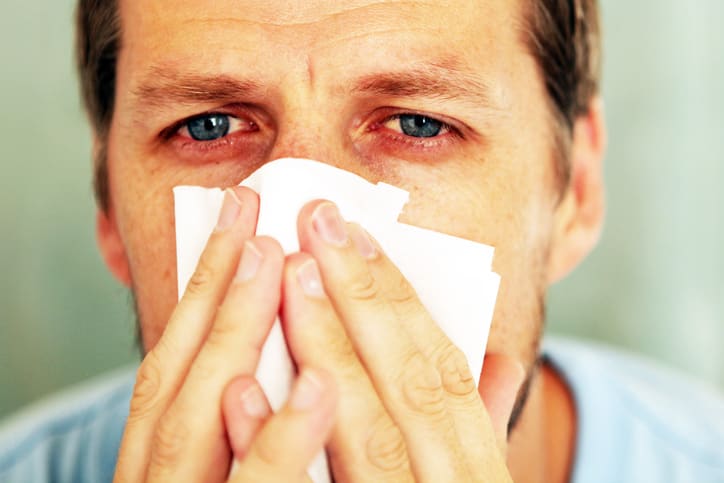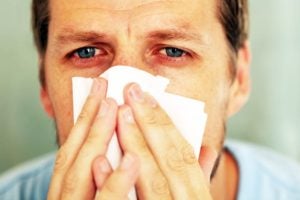How to Get Relief from Eye Allergies


If you’re allergic to pollen, dust, mold or pet dander, you may struggle with watery, swollen, itchy eyes. Thankfully, at-home and prescription remedies are available. Here are some different approaches you can take to get relief from eye allergies.
At-Home Remedies for Preventing and Relieving Mild Eye Allergies
For many people, it’s possible to avoid allergy triggers and relieve symptoms with DIY methods. Here’s what to try first.
- Keep the windows shut, especially in the morning and evening when pollen counts tend to be at their highest.
- Cover pillows with hypoallergenic pillowcases to reduce your exposure to dust mites, and wash your bedding weekly in hot water.
- Keep your pet out of the bedroom to reduce your exposure to pet dander while you sleep.
- Dust and mop often to remove pet hair and dust from hard surfaces.
- Wear wraparound sunglasses to protect your eyes from pollen when mowing the lawn or engaging in other outdoor activities.
- Remove your contact lenses, which can attract airborne allergens. Consider wearing eyeglasses throughout allergy season.
- Gently clean your eyelids before bed to remove pollen and other allergens that could irritate your eyes while you sleep.
- Place a cool washcloth on your eyes to relieve swelling and itching.
- Rinse your eyes with saline solution or artificial tears to help flush out allergens.
- Apply allergy eye drops to combat your symptoms. Wait at least 15 minutes before putting in contact lenses.
- Take oral antihistamines or other over-the-counter allergy medications.
Prescription Remedies for Moderate to Severe Eye Allergies
When DIY methods aren’t enough to combat your persistent symptoms, ask your eye doctor what other options are available. Here are some prescription eye drops and oral medications you may want to try.
- Antihistamines reduce eye allergy symptoms by blocking histamine cells that generate an allergic response.
- Decongestants help you breathe easier by shrinking swollen nasal passages. They also relieve redness by reducing the size of blood vessels in the whites of your eyes.
- Mast cell stabilizers prevent mast cells from releasing histamines. Because it takes weeks for mast cells to reach their full potential, you should take this medicine as a preventatives measure rather than a treatment for existing symptoms.
- Nonsteroidal anti-inflammatory drug (NSAID) eye drops decrease swelling caused by seasonal allergic conjunctivitis, also known as hay fever.
- Corticosteroid eye drops relieve acute eye allergy symptoms. They are designed for short-term use only because of the complications that can arise with prolonged use.
- Immunotherapy is a treatment for people with severe allergies. You achieve long-term relief after a few months of injections that help you build up immunity to certain
Eye allergies aren’t the other thing that can affect your eye health. Keep your vision clear with regular visits to Gerstein Eye Institute. To schedule an eye exam in Chicago, IL, please contact us at 773.596.9545 today. We have been offering preventative eye care since 1968.
